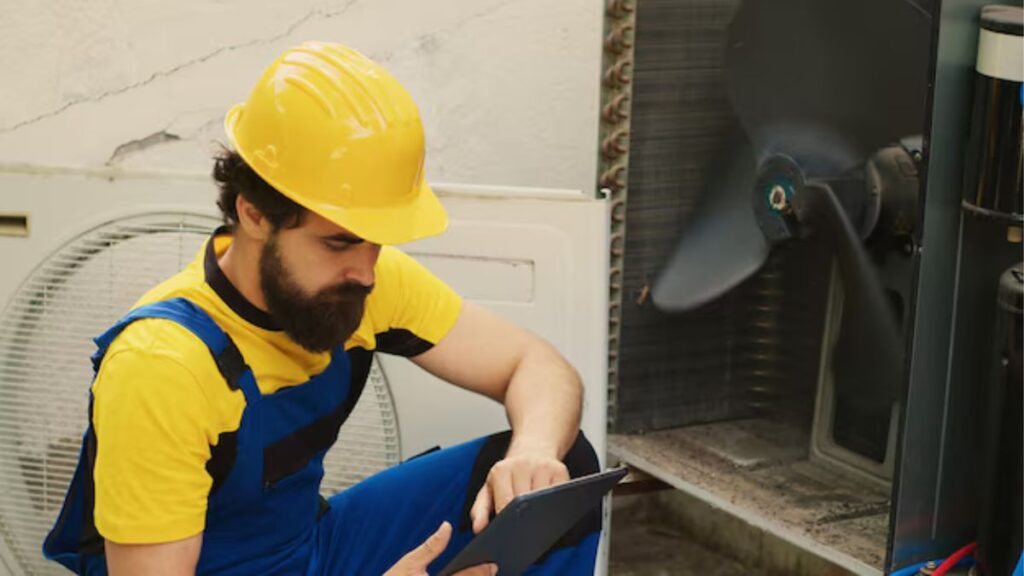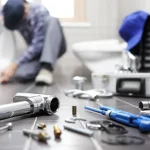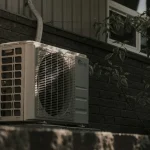Air conditioning systems are a necessity, especially during scorching summer months. When your AC malfunctions, it can turn a comfortable environment into an unbearable one. Homeowners often panic when their air conditioning units stop functioning as expected.
Understanding the common reasons behind these issues can save you both time and money. Let’s dive deeper into the common problems that might be causing your air conditioner to not operate efficiently.
Dirty Air Filters
The most prevalent reason for an AC breakdown is dirty air filters. When the filters are clogged with dust, debris, and allergens, the airflow is restricted. Reduced airflow means that air cannot circulate properly through your home, leading to inefficient cooling. This issue can put excessive strain on the system, potentially causing it to overheat or fail entirely. Regularly checking and replacing air filters can prevent many common AC issues.
Homeowners should aim to replace or clean filters every one to three months, depending on usage. Neglecting this simple maintenance task can lead to more complex problems, thereby increasing the necessity for a professional intervention. If this situation occurs, the right AC Repair Rockwall TX services—if you live in the area—might solve your issues as soon as they arise. Keeping your filters clean is an easy way to keep your system running effectively and extend its lifespan.
Refrigerant Leaks
Another common issue occurs when there is a refrigerant leak in your AC system. Refrigerant aims to cool your home, as it absorbs heat from the indoor air and releases it outside. If there’s a leak, the unit cannot generate the necessary cool air. Symptoms of low refrigerant levels can include increased energy bills, longer running times, and, in some cases, iced-over coils.
Addressing refrigerant levels is not a straightforward task and should always be left to professionals. Attempting to fix the problem yourself may lead to further complications or safety hazards. Refrigerant is a regulated substance, and improper disposal can harm the environment. Maintaining proper refrigerant levels ensures efficient cooling performance and can help avoid a complete system failure.
Electrical Problems
Electrical issues are at the root of many AC malfunctions. Problems may arise from faulty wiring, blown fuses, or malfunctioning circuit breakers, interrupting the AC’s operation. A malfunctioning thermostat can also result in inefficient cooling as it may fail to communicate your desired temperature to the system.
Sometimes, these electrical issues may become serious safety concerns and turn into potential fire hazards. Regular check-ups by a qualified technician can identify these problems before they lead to system failure. Investing in a smart thermostat can improve your system’s efficiency and ensure that it operates correctly. An adequately functioning electrical system will save you from costly repairs and enhance the overall performance of your AC unit.
Drainage Issues
Air conditioning systems produce condensation, which must drain away efficiently. If the drainage system is clogged or malfunctioning, it can lead to water pooling inside or near your AC unit, fostering mold and mildew growth. Such conditions can also damage your home’s structure and lead to expensive repairs.
Regular check-ups of the drain pan and drainage lines keep the system functioning properly. In certain cases, you might notice a musty smell or excessive humidity in your home, signaling drainage issues. Keep the drain line clean for proper functioning while extending the life of your system. Preventive maintenance is key to avoiding emergency repairs and unwanted water damage to your property.
Compressor Problems
The compressor is regarded as the heart of an air conditioning system. If it fails, the unit will not cool your home effectively. Common symptoms of compressor issues include weird noises, unusual vibrations, or a complete lack of cool air. Compressors can fail for various reasons, ranging from electrical issues to improper lubrication.
Given the complexity of compressors, diagnosing problems without professional help can be challenging. Routine maintenance checks can help detect early signs of compressor issues, saving you both time and money. Regular lubrication, checking contact points, and ensuring an adequate cooling environment all contribute to the compressor’s health. If your AC is struggling to keep your home comfortable, a professional could prevent a complete breakdown and costly repairs.
Age of the Unit
Like any appliance, air conditioning units have a finite lifespan that usually ranges from 10 to 15 years. As they age, efficiency can decline, leading to increased energy bills and inconsistent temperature control. Older units may struggle to meet the modern demands of a household, causing them to overwork and wear down quickly.
Regular maintenance may not always be enough to offset the impact of age. If your system is nearing its final years, consider upgrading to a more efficient model that meets current energy standards. Aside from operating a new unit more efficiently, it may also include advanced features such as programmable settings or improved filtration systems. Investing in newer technology can facilitate better air quality and energy savings in the long run.
By being aware of these common AC problems, homeowners can take proactive steps to maintain their systems. Whether it involves simple tasks like cleaning filters or recognizing when professional help is necessary, understanding your air conditioner will keep it running smoothly. Regular maintenance and awareness of warning signs will ensure your system can face the summer’s heat without interruption.







